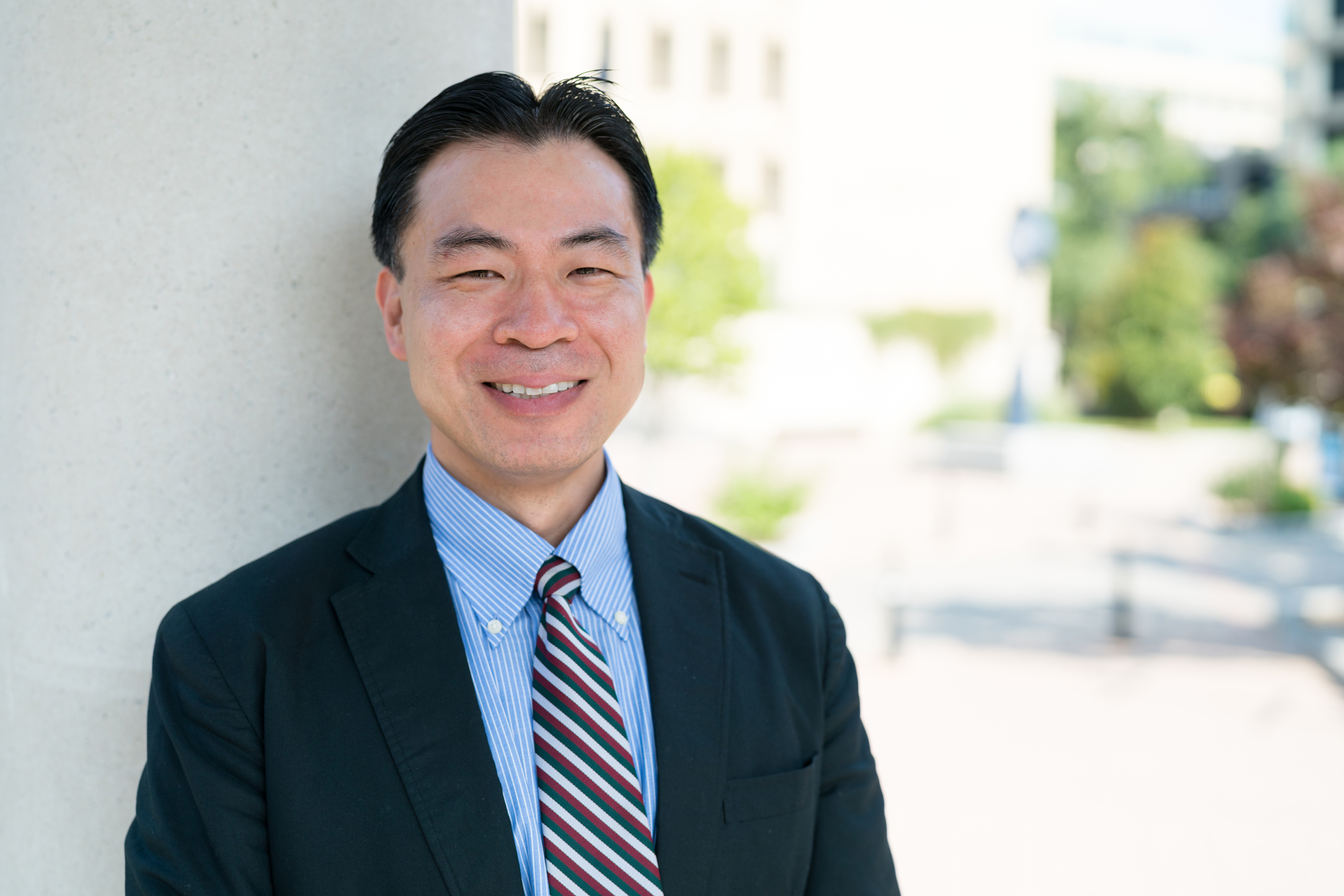It happens every year. Health care facilities and workers face the daunting challenge of preparing and responding to seasonal influenza. Flu becomes a topic of discussion at dinner tables, water coolers and medical facilities nationwide. The Centers for Disease Control and Prevention recorded more than 224,000 cases of influenza during this past flu season; numbers that are on par with the pandemic of 2009.
But how effective and necessary are flu shots really?
Answering this question has been a dominant focus for Tony Yang, a professor and health services and policy researcher at GW Nursing who also happens to be a lawyer.
According to Dr. Yang, studies show that some of the primary deterrents to immunizations are concerns about the safety and efficacy of the influenza vaccine, despite the fact that each year the vaccine is reviewed by the Federal Drug Administration to ensure its safety and potency before it is approved for immunization of the public.
“Influenza is a dangerous disease, and programs with voluntary compliance have not had satisfactory results to date,” Dr. Yang said.
Compliance is particularly concerning among health care providers, according to Dr. Yang.
“Health care workers tend to underestimate their risk of getting the flu or the risk they pose to their patients,” he said.
Healthy adults can pass the influenza virus to someone else before symptoms begin, and they can continue to infect others up to five days after getting sick. “It is very possible for a healthy adult to unknowingly spread the virus to patients at high risk for serious complications from influenza,” Dr. Yang said.
“An increasing number of hospitals are mandating their employees get vaccinated against influenza, and this policy is right. Having a stronger policy that requires health care workers to be vaccinated helps protect employees themselves but also the patients for whom they provide care,” said Dr. Yang.
Today, more than 600 health care organizations in the U.S. have implemented mandatory vaccination policies, requiring employees to get an influenza vaccination or risk losing their jobs. Lawsuits challenging these policies based on religious grounds are steadily on the rise.
So how do health care systems strike a balance between a commitment to preserve public health and a legal obligation to respect religious beliefs?
Dr. Yang's interest lies at the intersection of law and health systems. He has conducted extensive empirical research and is a nationally recognized expert in the area of vaccine and immunization policy and law. Dr. Yang’s research was recently published in Vaccine to help educate hospitals on potential legal challenges based on religious discrimination claims and to ensure their own mandates are reasonably applied to help maintain a healthy and productive workplace.
Dr. Yang’s research demonstrates that employers can satisfy their legal obligation to reasonably accommodate workers’ religious beliefs in a variety of ways—without granting exemptions from vaccination.
“But employers should try to find the least onerous option that still protects patients. Tailoring accommodations to the specific individual based on how much contact they have with patients, for example, is good policy,” he said.
Hospitals can further prevent problems by giving employees the chance to explain their deep religious beliefs, so that if exemptions are denied, the decision can be made with respect and consideration, balancing the scale between law and medicine.


